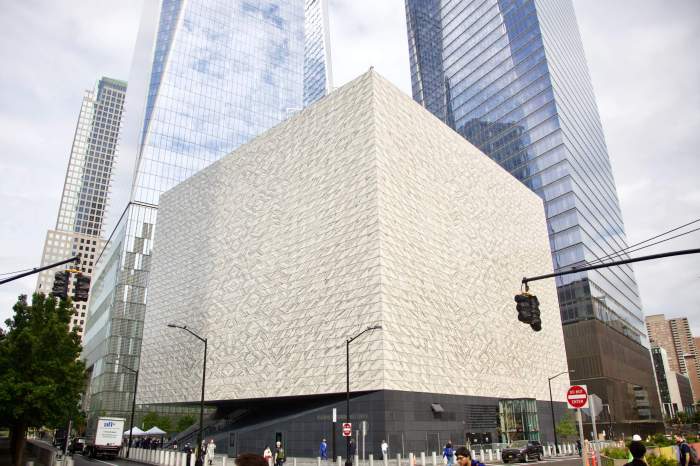By Steve Schwartz
“All parents are rather stressed about the college admissions process,” says Susan Macaluso, the parent of a child who graduated from NYC Lab School in 2007 and who is now a sophomore at Brown University. Indeed, the process does become more competitive every year, largely due to the fact that increasing numbers of students are applying to college, while the number of spots at colleges is not increasing. The result is that while top grades are necessary for admission to first-tier colleges, grades alone no longer guarantee admission. One must also possess high SAT or ACT scores, compelling essays and outstanding extracurriculars.
In fact, many students believe that their grade-point average is given more emphasis in the admissions process than it actually is. While most applicants to selective universities are academically qualified, there are simply not enough spots available. Accordingly, students seek to distinguish themselves through their extracurricular activities. These activities provide another set of criteria by which admissions committees make their decisions. An ability to demonstrate lasting dedication to a few meaningful extracurriculars, rather than mere membership in many, can make a significant difference. Students should aim to show a meaningful contribution to their school or community and how that participation or leadership has influenced them.
Arsean Maqami, who grew up on Washington St. in the Village, agrees. This recent graduate of NYC Lab School, on W. 17th St., will attend Swarthmore College in the fall. Maqami’s high school passion was soccer, so he ultimately chose Swarthmore over the University of Chicago, where he was accepted early action, because he preferred the soccer coach at the former. Maqami feels that students really need to promote themselves.
“College admissions is a pretty strenuous process for most people, and sports were only a little bump for me,” he says. “It’s all about why are you better than anybody else? I played soccer and a lot of people don’t do anything.”
Randy Subramany recently graduated from Xavier High School, on W. 16th St., and will be starting this fall at Columbia University. Subramany believes that in his admission, “Test scores by far were most important thing, but…demonstrating the ability to balance everything was also important. I was on cross-country and track. I was also a tutor for three years and a Big Brother, and I was in the math club and the medical science club. Colleges saw my ability to challenge myself. I didn’t just do one different activity per year. I always kept that level of challenge on my plate and never really backed down from it, while I made sure that my work didn’t slip at all.”
Subramany’s appetite for maximizing the opportunities available to him was not limited to his high school activities.
“I applied to 16 colleges, and my list was originally 10,” he says. “This was my one chance to apply to my dream schools, so I was very aggressive. I would say, ‘Don’t be scared to apply to your reach schools.’ I didn’t think I’d get into Columbia, so don’t let the statistics scare you. Believe in yourself. The only thing it’ll cost you is maybe the $60 application fee.”
While being elected to an important-sounding club position is a goal of many ambitious high school students, it is a misguided one. An explanation of why the student was involved in a club, and of the contributions that he or she made, will impress admissions committees more than simply obtaining a fancy title. At top high schools, it can be difficult to gain leadership positions in school clubs where there are many other qualified candidates.
Meanwhile, an abundance of opportunities exist in the “adult world” through community organizations, nonprofits and internships. Many students launch fundraising campaigns for worthy causes or mobilize peers to tackle a problem head on. Teachers, parents, friends and college counselors can help to plan and advise these endeavors.
Joining several clubs is a great way to learn where one’s interests lie and ascertain which groups will allow the student to accept meaningful responsibility. Yet, one should not list every club on the college application. If the student wants to write about extracurriculars, pick one that was meaningful and explain its impact. In the college essay, discuss a specific experience or activity, and concentrate on the details that draw a picture of the experience.
As Maqami puts it, “You basically have to be full of yourself in your college essay. There are so many colleges out there for you, especially if you do something with yourself. You need to accentuate what’s better about you than anybody else. Also, use spell check. There was one word I spelled wrong in my opening paragraph. I freaked out and called the college to ask if I could resend my application, but they said not to worry about it.”
Maqami was lucky in this instance, but as the admissions process becomes increasingly competitive, students in future years may not be so lucky. The application is the student’s only chance to show colleges who he or she truly is. A college essay about the student’s most fulfilling extracurricular activity will provide the admissions committee with a snapshot of his or her personality and with the lasting impression that the student is a focused, responsible and well-rounded individual who will be a valuable part of the college community.
Steve Schwartz is a professional college counselor and tutor for SAT, Regents and Advanced Placement Exams.

















